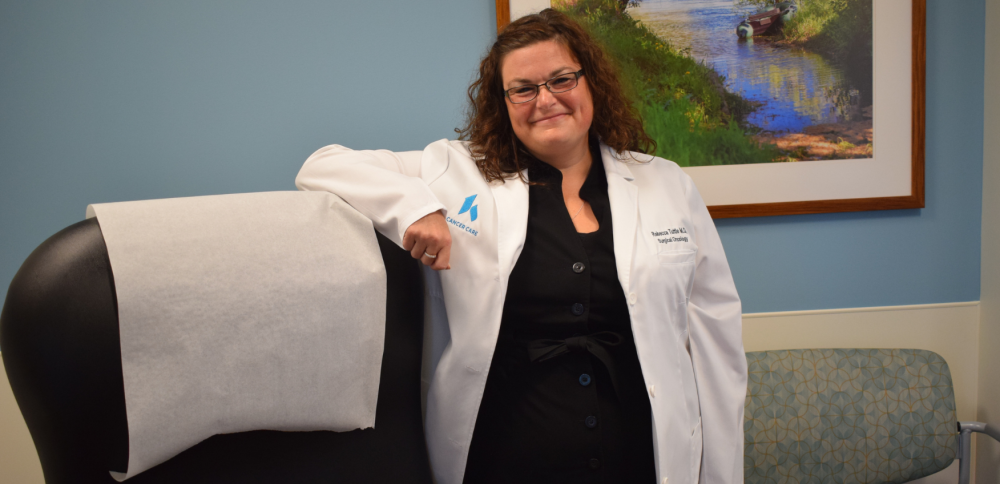Cancer Care
Want to learn more about this at Kettering Health?
Wearing sunscreen is one of the best ways to avoid skin damage and reduce the risk of skin cancer. When choosing a sunscreen, one thing to consider is the Sun Protection Factor, or SPF.
What is SPF?
The SPF number indicates how much longer it would take your skin to redden while using sunscreen compared to wearing no sunscreen. With an SPF 30 sunscreen, it should take 30 times longer for your skin to burn compared to unprotected skin.
“I recommend sticking to SPF 30. It blocks approximately 97% of UV rays,” explains Dr. Rebecca Tuttle, a surgical oncologist.
Sunscreens with higher SPFs are stronger, but Dr. Tuttle says the difference in protection is marginal. SPF 100, for instance, blocks about 99% of UV rays. No sunscreen exists that blocks 100% of the sun’s rays.
Does that mean sunscreen with a higher SPF lasts longer?
No. The SPF number has no correlation to how long your sunscreen lasts. “Higher SPF sunscreens provide increased protection but do not last for longer periods of time,” stresses Dr. Tuttle.
That’s because the SPF number is calculated based on the intensity of the sun’s UV rays, not the length of time you spend outside. For example, you’ll burn faster on a clear day than when it’s cloudy because clouds absorb some of that damaging solar energy.
Dr. Tuttle says it’s vital to reapply sunscreen regularly. “Sunscreen wears off. It should be applied at least every two hours or immediately after swimming or sweating.” Sunscreens can be water-resistant, but none are waterproof.
Does the SPF affect how much sunscreen you need to use?
No matter the SPF, “apply a uniform amount of sunscreen,” advises Dr. Tuttle. “It should take approximately 1 ounce of sunscreen to cover an adult’s body—which is roughly the same amount as a travel-sized hand sanitizer bottle.”
She says there is no difference between lotions or sprays as long as the proper amount is applied. “For full protection, apply sunscreen at least 30 minutes prior to sun exposure to give your skin time to fully soak it in.”
Is SPF clothing as effective as sunscreen?
Sun-protective clothing can absorb or block UV rays. “Remember to apply sunscreen to any uncovered body areas like your hands, neck, and feet,” says Dr. Tuttle.
If you do get sunburned, use aloe or cooling gel for relief. For a severe sunburn that continues to blister or needs to be examined, see your primary care provider or the closest Kettering Health On-Demand Care.









